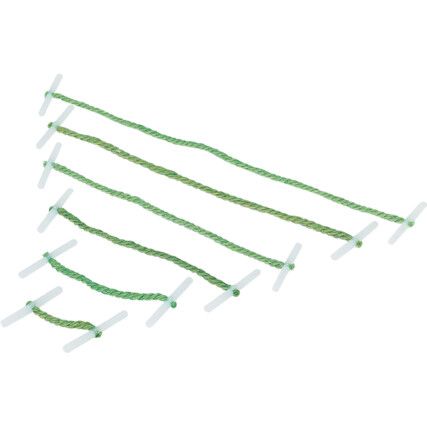Treasury Tags
Treasury tags are handy bits of office stationery that can be used to bind together hole punched documents and files. Cromwell stock a range of treasury tags from stationery brands like Qconnect, so you can be assured of quality at an affordable price.
What are treasury tags?
Treasury tags are used to fasten sheets of paper together or to a folder. They are made using a short length of string, with metal or plastic cross-pieces at each end. The ends sits crossways to the string, anchoring the tag at each end and securing the documents on the tag.
Why treasury tags?
Treasury tags are cost effective and simple to use; they make easy work of attaching large numbers of paper together and can easily be threaded and unthreaded into your desired papers.
When to use treasury tags?
Treasury tags are commonly used in an institutional setting such as schools and offices to keep important documentation together.
Types of treasury tag
• Plastic ended - These are cost effective treasury tags designed for day to day office documents and files.
• Metal ended - These are more durable and are used to create a more professional look when binding a document together.
Considerations when choosing treasury tags
• Length - This will determine how many steets of paper can be stored on one tag.
• End - Metal ends tend to come across as more professional especially in executive environments, plastic tags are useful in educational environments as they are more cost effective.
Treasury tags jargon buster
Here at Cromwell, we want to ensure that you find the right product for your needs. To help you to better understand our range of treasury tags, we've outlined some key terms to allow you to make a confident purchasing decision.
What is a T-bar on a treasury tag?
The plastic or metal rod at each end of the treasury tag is commonly referred to as a T-bar, referencing the shape that it makes when commected to the string or thread that is attached to it.
FAQs
What are treasury tags used for?
Treasury tags can be used for several applications, a common domestic use is fastening together household bills, so they can be kept together in one place. Their deign means more documents can be added as they arrive.
